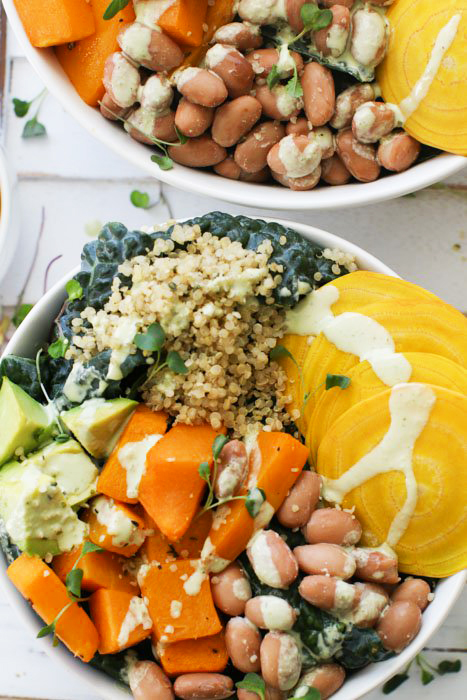It’s pretty fascinating that most of us grow up believing that the best way to get calcium is through dairy. At least that was the case for myself: I remember hearing from early on that I had to finish my milk at breakfast or eat an extra yogurt for dessert so I could have “strong bones.”
The truth is that dairy is really designed for baby cows, goats, and sheep to grow quickly, and not for adult humans. Human consumption of dairy comes with many negative side effects. It has high amounts of saturated fats and cholesterol. It also contains lactose sugar, which a lot of people are allergic to. And above all, while dairy does include calcium, that does not mean that it’s good for your bones.

Calcium is mostly found in our bones, and a small amount appears in our bloodstream. Although common wisdom dictates that we should increase our intake of calcium, I argue that our primary goal should be preventing excessive calcium loss in order to maintain already healthy bones. So how do you do that?
One way to reduce calcium loss, which is natural as our bones rebuild themselves constantly, is to reduce the consumption of animal protein found in dairy, meat, eggs, and fish; according to one theory, animal protein causes calcium to be leached from the bones. Animal protein contains sulfur-containing amino acids, which have a tendency to acidify the blood. Our blood needs to maintain a slightly alkaline pH, however. To neutralize the acidity from animal products, calcium (which is alkaline) found in our bones is dissolved into the bloodstream and is eventually excreted through our urine. Overtime, this can potentially have unfortunate consequences for our bones.
According to a 2001 study, “Women who ate most of their protein from animal sources had three times the rate of bone loss and 3.7 times the rate of hip fractures of women who ate most of their protein from vegetable sources…[A]n increase in vegetable protein intake and a decrease in animal protein intake may decrease bone loss and the risk of hip fracture.”
Calcium is also lost through urine if you consume a lot of coffee, as well as sodium, so it’s important to be mindful about consuming those in moderation.
To absorb more calcium, you should make sure to work out regularly. Try to include strength training to build up muscles and bones. Also, try consuming plant-based sources of calcium such as green leafy veggies, legumes, tofu, dried figs, oats and other grains as well as nuts and seeds (tahini is a good one!). Also, sunlight is essential–but make sure you grab that non-toxic sun screen–and talk to your doctor about supplementing with vitamin D.

Try this Borlotti Bean Bowl with Cilantro Tahini
Now, what’s up with the stong-bones milk myth? While nutrition studies are still limited and we are still learning a lot about how certain foods affect our bodies, some past studies reveal that milk might be leading to rather than preventing osteoporosis. A Harvard study from 2004, conducted over 12 years, followed 78,000 women and concluded that women who drank milk three times a day broke their bones considerably more often than those who rarely drank milk. This doesn’t mean that dairy is causing osteoporosis, however–other factors such as smoking, weight and sodium consumption play a major role here as well–but the researchers concluded that dairy consumption, in fact, does not protect against bone breakage. Moreover, a 2005 study proved that milk consumption did not increase bone density in children.
Unfortunately, there is no 100% clear answer on this topic, but what is clear is that you do not need to consume dairy to get the recommended five micrograms of calcium per day. Furthermore, the results of the aforementioned studies suggest that dairy is unlikely to be the magic bone builder we once thought it was, and it may even be one of the factors causing more harm than good. And, in any case, it’s proven that dairy has way too many other side effects for you not to exclude it from your diet.
What are your favorite sources of plant-based calcium?
Also by Isabelle: Why You Should Never, Ever Eat Fake Sugar (Hint: It Can Make You Gain)
Related: 10 Epic Dairy Free Ice Cream Spots To Cool You Off This Summer
Best Post Workout Routine Includes These Alkaline Snacks & We’re Not Complaining
Get more like this—Subscribe to our daily inspirational newsletter for exclusive content!
__
Photo: Tim Wright on Unsplash, Lauren Kirchmaier




